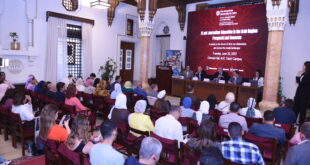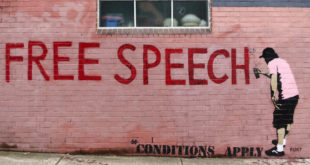Cambridge Arab Media Project: The Media and Political Change in the Arab World, 29-30 September 2004
Good morning everybody. Let me start by expressing my gratitude at being invited to this event and also for the very strong start that we had last night, which makes my job easier this morning.
We listened to Prof. Telhami last night telling us about the impact of Arab satellites--especially Al Jazeera. Today I would like to share with you some personal experiences in my encounter with Arab satellites both as a contributor to their programs, as their victim sometimes, and also hopefully sometimes as their interlocutor.
Let me say a few words--a background--about why Arab satellites have done probably for the Arab world more than any organized critical movement could have done, in opening up the public space, in giving Arab citizens a newly found opportunity to assert themselves.
A few words about the background: in the last fifty years, the Arabs--the average Arab--was the victim of state controlled media that distorted his consciousness, that misled him, and that created at the end a general malaise, confusion, and alienation. These are not just words, these are again not only the result of direct observation but also the result of the systematic research people like myself have done in the last thirty years in the Arab world.
It all started with dramatic events like the 1948 first Arab-Israel war--what we call the Palestinian nakba, or disaster--and that as you all know (I don't intend to retell history) but among other things, the feeling of nakba was a result of the incipient demagoguery of media that framed the conflict in ways that made the average Arab expect a quick settlement of the problem by sending the newly formed seven Arab armies from seven Arab countries to deal with gangs--Zionist gangs--and everybody thought that was going to be a picnic and that it was going to be over in a week, two weeks, a month at the most and the whole thing would be over!
The reality, as you all know, was quite different, and the defeated army coming home was as frustrated, as shamed, as was the entire nation. Therefore they had to find a scapegoat. The scapegoat was the government that sent them to Palestine. Therefore one coup d'etat after another began, starting with Syria then Egypt then Iraq and the story goes on.
Even countries that did not exist as independent countries, like Libya, when they had a coup d'etat, Palestine was there in their first communiqué. Always the first communiqué issued following an Arab coup d'etat would mention Palestine as prime mover behind the coup d'etat--all of whose perpetrators were called revolutionary by the way.
And that was the start of a certain type of media that distorted Arab consciousness and created much of the crisis that we are still living with and trying to get out of.
What is the crisis? If you belittle your enemy and despite of this belittling you get defeated, you have to find an explanation and the explanation was always a conspiracy somewhere. So we lived in the last fifty years moving from one conspiratorial explanation to another. The conspiracy is either that foreign powers are conspiring against us or local domestic agents are helping the enemy. And much public energy and thinking went into looking for conspirators, traitors, agents, inside, outside, or somewhere in between, instead of dealing with the problem head on, looking at the problem, analyzing it, seeing what it takes, dealing with it to settle it, to solve it. That is not why the media and the politicians have conspired to alienate their people and to give them a false make-believe world full of agents, as if every morning the world wakes up and says, "What are we going to do to the Arabs today?" That is always the question: what are they doing to us today? When you read the media, there is a remnant of this until today.
Darfur and Sudan are next after Afghanistan, after Iraq. It is Sudan, then Syria. So the world has nothing to do but to plot to defeat, humiliate, and exploit the Arabs.
That is the perspective you get in much of the media and it all started from 1948. Then came '67--an even bigger defeat than '48--then the war in Lebanon, then the First Gulf war and the Second Gulf war. Well of course, it is always appearance that makes a conspiracy theory credible. It is always the circumstantial evidence that makes the role of the media, the state-controlled media, very crucial.
What does this have do with our theme of Arab satellites? What Arab satellites did was to break and shake this pattern by virtue of giving you some diverse perspectives, some different interpretations, by allowing people to be inter-reactive with the media. This is new to the Arab world and that takes me to one very important personal note in which I say. I am indebted to Arab satellites.
During my ordeal, during my incarceration during the Ibn Khaldoun case, we have two interesting sharp contrasts: at the one end a very powerful Egyptian state media concentrating on framing one individual and his associate researcher for the simple reason that they had called a spade a spade and said that there appears to us--at Ibn Khaldoun--that there is an attempt to turn republics in the Arab world into monarchies, starting with Syria via Iraq, via Egypt, via Libya, via Yemen.
And we gave our own view of what was happening. That made us enemies, not of Mubarak's regime, but of Egypt and of the Arab nations and of Islam. And it caused us to be dubbed as traitors and so on.
It was only the Arab media, the Arab satellites, that gave me an opportunity to break out of this. We were able to answer them. I did not reach every Egyptian home like state-controlled media, but satellite allowed me to try. That is one thing I owe to Arab satellites.
It is true also that the Arab satellites took their clue from Western media. It was CNN that interviewed me first after I got out of jail. It was Jonathan Mann of Insight and so on that again gave the Arab media the lead to live up to international standards--the space, the opportunity to interview me, my family and my colleagues, to get a different perspective after three years of systematic character assassination. And it was not just for personal issues, it was for issues we in Ibn Khaldoun and others like us stood for.
There is more we can talk about in the discussion and there is the framing of important issues. What the case was about was not "hereditary republics." That was a term I coined. The day that article appeared in al-Magalla magazine was the day that I was arrested. Again the interfacing between the print media and the Arab satellites is very interesting because that issue became the subject the Arab satellites would take up. It appeared first in the print media a few years earlier, after the Iraq war, when again another piece appeared from us, from Ibn Khaldoun, that argued that if we do not change, then the reform may be imposed on us from outside. And we gave our perspective. The Arab world is too important to be left to its dictators, to its despots, to engage all kinds of adventures and to budge the world with them, from one crisis to another. If we do not reform ourselves, the world may have to do it for us. So let us do it by our own volition and at our own pace instead of waiting and waiting until the situation gets out of hand and then outside forces compel us to do it according to their own agenda.
That was the message that appeared in an article in Al-Hayat, and triggered a series of debates on the Arab satellites. I was a party to six or seven of them. The debate still goes on, the change by our own hand from the inside or the outside, and that debate compelled the regime to take on the agenda of reform--whether they are sincere about it or not, we can debate--but the agenda of change and the items of change, the reforming of the constitutions, the creating of constitutions, having an electoral system, having competitive elections. No more plebiscites for the president, no more 99.99 percent majority. All of this became the agenda for the reform advocates in the Arab world today.
I again have to give credit to Arab satellite for making these issues daily issues in the language of discourse. Whether or not it amounts to the language of change we all want is a different matter. But at least it is there, at least there is an opportunity for us. It is Arab satellites that have to take the credit for that, for making that issue a pressing issue.
Finally, I must ask, "What has this done to Arab public life?" As a pan-Arabist who lived a good deal of my earlier life working for Arab unity and for Arab liberty and like many people of my generation, the defeat of '67 was devastating and the dream of Arab unity gradually faded to the background.
I think in many ways Arab satellites de facto or by default are creating the infrastructure for the dream of Arab unity. In what sense? Around the first half of the 20th century it was things like al-Hilal, al-Risala, Umm Kalthoum, Farid Al-Atrash. These were the voices that created Arab consciousness from Morocco to Bahrain and then came the authoritarian Arab regimes that created cement borders between Arab countries. And ideas and books became more lethal to those regimes than drugs, hashish, and opium and so on. So we went through a natural spontaneous creation of Arab consciousness through culture though the first half of the century, let's say from Jibran Khalil Jibran to Dar Al-Hilal, to Al-Risala, to Arab art to Egyptian movies and so on.
After '48 we begin to get those authoritarian publicist regimes that despite the slogans really fragmented the Arab land more than ever, more than the colonialists, and now the Arab satellites are re-shaping that consciousness on new grounds by creating themes, discussions, discourse so that people from Al Arabiya in London to Al Jazeera in Qatar to LBC, to all of these satellites, are now creating a new consciousness. Creating an agenda where people may disagree but at least speak the language. They interact with this media, they react with it. We heard a great deal about that yesterday.
And I am actually one of those who always is looking for hope in any small ray here and there. I say that my dream as a young Arab activist for unity, a student like you studying and living abroad--my earliest activist role was as an Arabist president of the Student Union in North America--was all predicated on the dream of Arab unity. Now I see that happening again. Not because of the Baath party, not because of the Arab nationalist movement, not because of the Nasserite movement, but because of Arab satellites and Arab satellite sponsored by whom? By people at one time we thought would never have thought of.
I still do not think that these people who are perpetuating these satellites or giving them birth are necessarily Pan-Arabists. But as we say sometimes, in sociological language, "Unintended causes sometimes result from human action."
When the Sheikh of Qatar gets into a dispute with Saudi Arabia and that dispute leads to a rivalry, and when Saudi Arabia's old Orbit satellite revokes its contract with the BBC, the Qataris rush to London and say, "Right. We will take the whole team that was doing Orbit news"--which was created by the BBC and dubbed into Arabic. They took the whole team to Doha and gave them one acre of land to create Al Jazeera.
It was a rivalry between two monarchical regimes that gave rise to Al Jazeera and the internal consequences of an internal Arab feud that created space for people from Morocco to Bahrain to enjoy some margin of freedom to assert themselves, to get some joy from listening to debates and to lively talk shows, and that is the kind of seed of empowerment that probably makes the future for us as Arabs a little better than it was yesterday. Thank you very much.
 Arab Media & Society The Arab Media Hub
Arab Media & Society The Arab Media Hub




